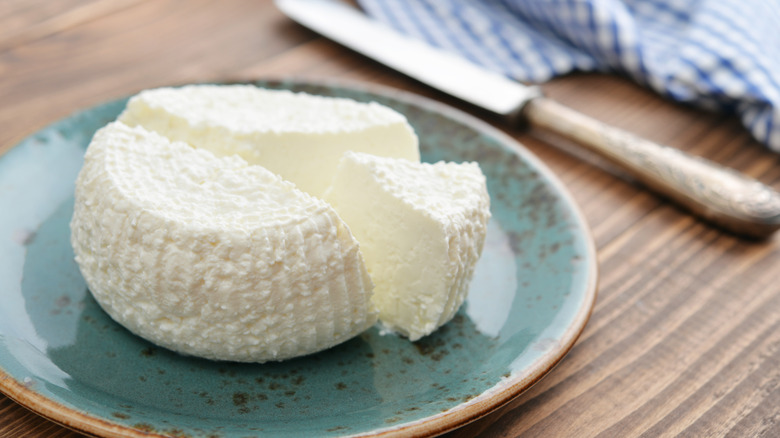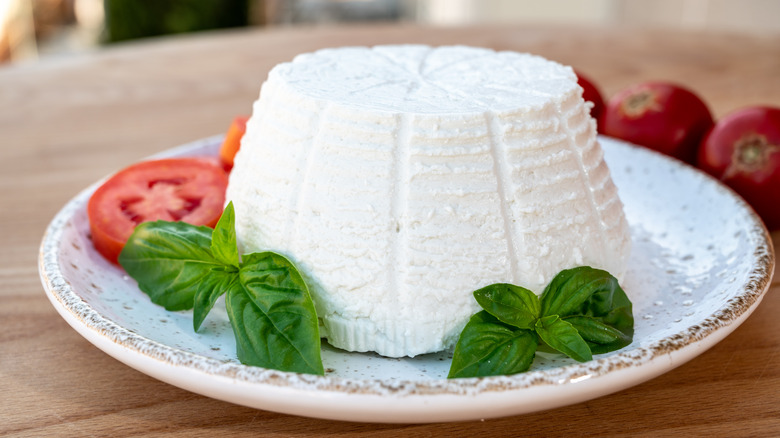How To Tell If Ricotta Cheese Has Gone Bad
If you find yourself standing in front of your fridge, scratching your head, and wondering how long cheese lasts before going bad, your next step will probably be one of a few. You might give the potentially offending cheese a sniff to check for any changes in its aroma. You might give it a poke to see if the texture has changed. You might give the cheese a thorough look-over to see if you can spot any of those tell-tale blue spots. But wait — mold isn't always an indicator of something gone wrong, especially since it's specifically added to some cheeses intentionally. So how can you really know if your cheese has gone bad, especially when you're dealing with one that's a little less conspicuous than others, like ricotta?
Ricotta cheese is a favorite for a lot of reasons, not least of which is its starring role in many a favorite comfort food, like lasagna. Packed with vitamin D, protein, and calcium, ricotta comes with a lot of benefits — until it doesn't.
The sign your ricotta is bad
According to Livestrong, if your ricotta has gone bad, it will change in both appearance and smell. Yes, ricotta doesn't have a terribly distinct smell, especially compared to other cheeses, but once it begins to smell sour, that's a sign it's gone bad. Additionally, while mold is a sign to throw out your ricotta, there are other changes in appearance that can indicate something's wrong. If the ricotta has gone yellowish or brown, or if there's a layer of water sitting atop the cheese, that's also an indicator that your ricotta has spoiled (so don't just shrug and mix the water back into the cheese!).
The U.S. Department of Agriculture says ricotta will typically last in the fridge for about a week before things go south. Just make sure your refrigerator is set to the recommended 40 degrees Fahrenheit or lower. While you can freeze some dairy products successfully (like yogurt), ricotta doesn't freeze well, so it's best to buy ricotta when you plan on using it within the week and enjoying it while it's still fresh and safe to eat.

